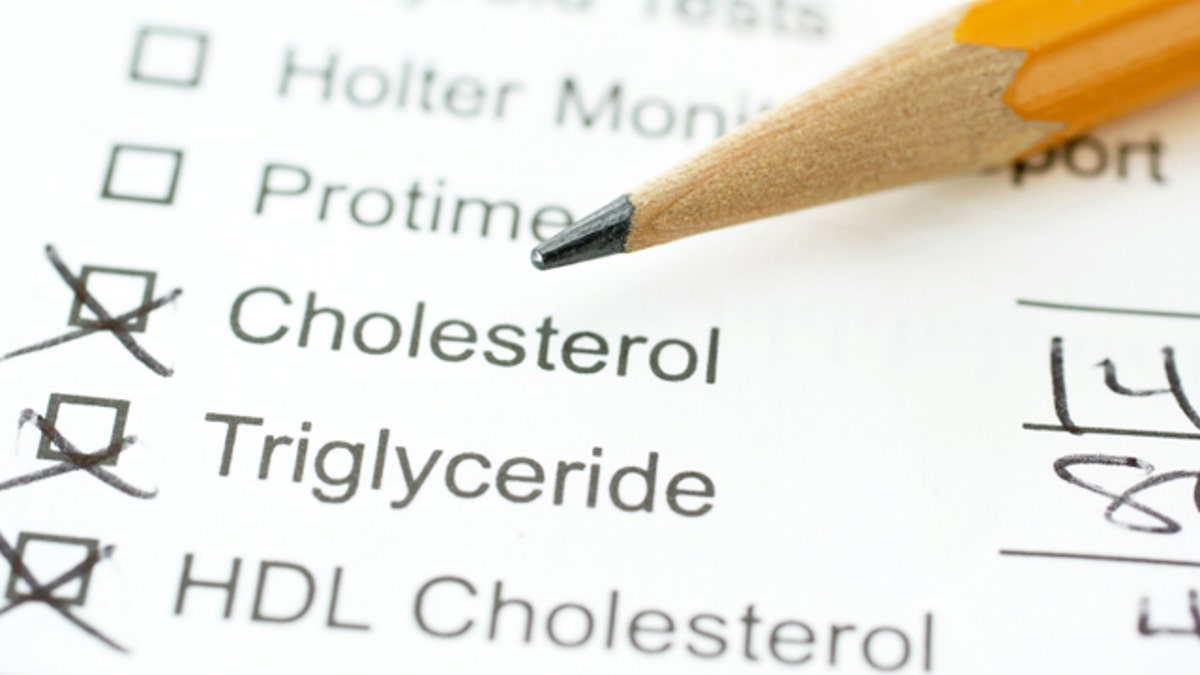
(iStock)
Kids can safely skip fasting before cholesterol tests, according to a new study that aims to simplify widely used guidelines.
Some medical groups currently recommend screening children over two for high cholesterol if they are obese or have family members struggling with high cholesterol or who died early from heart disease.
Those guidelines also advise fasting up to 12 hours before the test, so kids often have to return to the doctor a second time to make sure they come on an empty stomach.
The new study, published in the journal Pediatrics, doesn't advocate for or against screening, which some experts say is unwarranted and might do more harm than good. But it does find that fasting produced only minuscule differences in cholesterol test results compared to tests done when kids had recently eaten a meal.
"When compared to the burden and cost of return visits, and increased anxiety about returning for a blood draw, I think the difference is negligible," Dr. Michael Steiner, who worked on the study, told Reuters Health. "It's very hard for kids to fast."
Steiner, a pediatrician at the University of North Carolina Chapel Hill, said his findings should lead to a reassessment of the current guidelines from the American Academy of Pediatrics and the American Heart Association.
He and his colleagues tapped into a decade-long national survey done by the Centers for Disease Control and Prevention, which includes cholesterol measurements from close to 13,000 kids aged three to 17.
LDL cholesterol — often called "bad" cholesterol because it's linked to heart disease — increased slightly the longer children had been fasting.
For a typical kid the difference between a test immediately after a meal and 12 hours later would be only 5 milligrams per deciliter (mg/dL) of blood. By comparison, the American Academy of Pediatrics recommends considering treatment with statin drugs when LDL cholesterol reaches 190 mg/dL, or 160 mg/dL if a parent or grandparent has heart disease or high cholesterol.
That means screening just after a meal would miss only about one in 100 children with borderline fasting cholesterol. The findings were similar for other types of cholesterol.
"It's very unlikely that these small differences would make a difference in the screening results and what you do with those," Steiner said.
But whether or not fasting matters may not be as important as the question of whether kids should be screened in the first place.
Last year, for instance, government researchers found that in some kids, cholesterol levels appeared to drop naturally over time. And there is no evidence that giving kids statins will lead to less heart disease, the leading killer worldwide, down the road — just as the potential side effects of such long-term treatment are unknown.
For that reason, the government-funded U.S. Preventive Services Task Force does not recommend for or against cholesterol screening in children.
"There is so much uncertainty about the long-term impacts — benefits and harms — of putting kids on statins for decades," Dr. David Grossman, a member of the Task Force, told Reuters Health last year.
"We do know that you can have some impact on lipid levels, but whether or not that improves outcomes and quality of life, or whether or not you could wait until later to start treatment, that is unclear," he said.
Meanwhile, Steiner said, many doctors are pushing for screening.
"A lot of people feel very strongly that screening should be done," he said. "Hopefully our paper can help find the easiest way to do that."
The overarching question — whether any kids should be screened for cholesterol at all — "is also up for debate," Steiner added.
As for the more than one in six American youngsters who are now obese, the only thing experts can agree on is that they should exercise more, eat less, eat healthier foods and stay away from cigarettes.
